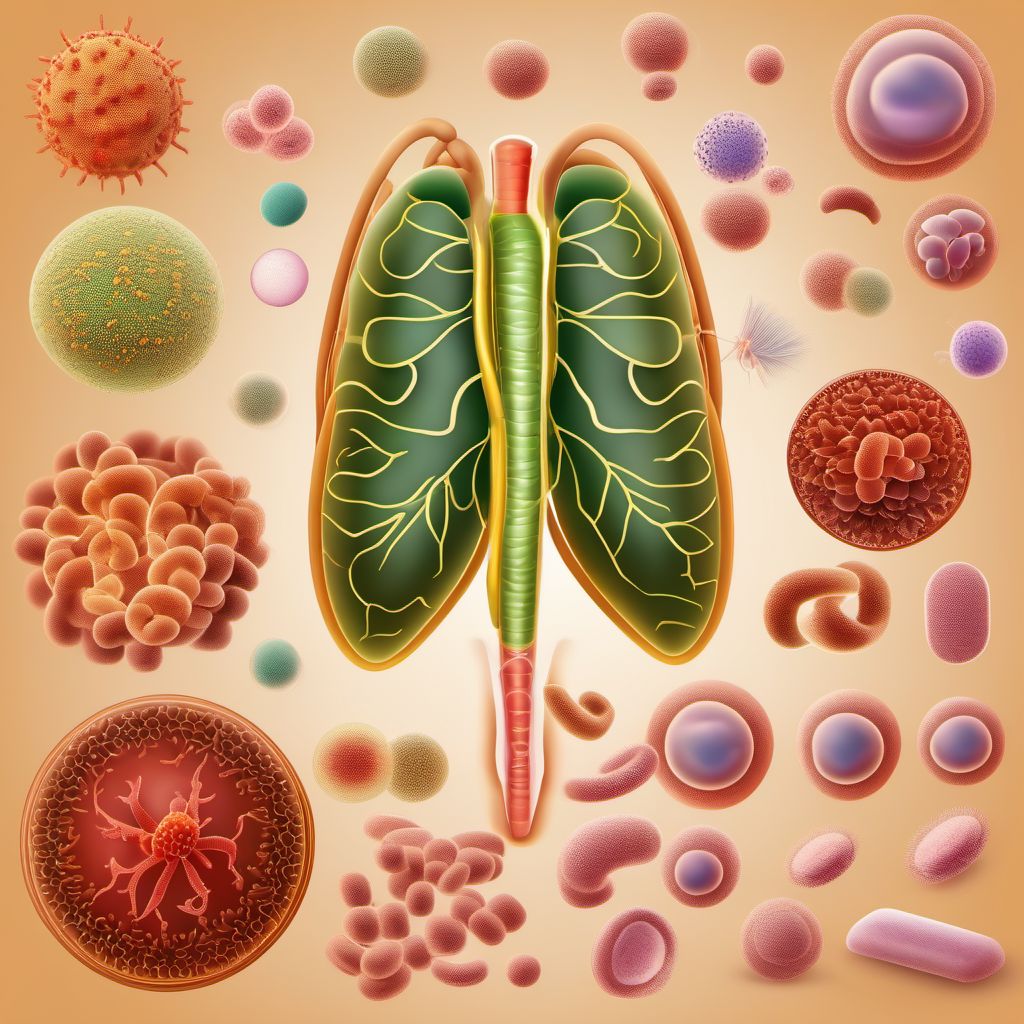
Other specified bacterial intestinal infections Save
ICD-10 code: A04.8
Chapter: Certain infectious and parasitic diseases
Other specified bacterial intestinal infections: Symptoms, Causes, and Treatments
Bacterial intestinal infections are a common health issue that can affect people of all ages. While some of these infections are well-known, such as salmonella and E. coli, others are less familiar. One such infection is known as other specified bacterial intestinal infections.
Other specified bacterial intestinal infections are caused by a variety of different bacteria, including Campylobacter, Shigella, and Yersinia. These bacteria can be found in contaminated food, water, or surfaces. When ingested, they can cause an infection in the lining of the intestines.
Symptoms of other specified bacterial intestinal infections
The symptoms of other specified bacterial intestinal infections can vary depending on the type of bacteria causing the infection. Common symptoms include diarrhea, stomach cramps, nausea, and vomiting. In severe cases, the infection can also cause fever and bloody stools.
Causes of other specified bacterial intestinal infections
Other specified bacterial intestinal infections are caused by ingesting contaminated food or water. This can happen when food is not cooked properly or when it comes into contact with surfaces or utensils that are contaminated with bacteria. People who travel to countries with poor sanitation may also be at a higher risk of contracting these infections.
Treatments for other specified bacterial intestinal infections
The treatment for other specified bacterial intestinal infections typically involves rest and hydration. In some cases, antibiotics may be prescribed to help fight the infection. It is important to seek medical attention if diarrhea persists for more than a few days or if there is blood in the stool.
- Rest and hydration are the first line of treatment for other specified bacterial intestinal infections.
- Antibiotics may be prescribed in some cases.
- Seek medical attention if symptoms persist or worsen.
Prevention is key when it comes to other specified bacterial intestinal infections. This can be done by practicing good hygiene, washing hands regularly, and properly cooking and storing food. It is also important to avoid drinking untreated water and to be cautious when traveling to areas with poor sanitation.
Conclusion
Other specified bacterial intestinal infections may not be as well-known as other types of bacterial infections, but they can still cause significant discomfort and health issues. By understanding the symptoms, causes, and treatments of these infections, people can take steps to prevent them from occurring and seek medical attention if necessary.